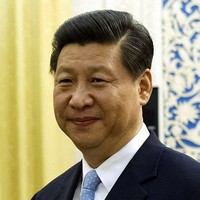Editor's note: This is the first in a two-part series on the policy priorities and initial reforms of China's new leadership. Part I examines domestic policy. Part II examines foreign policy.
Despite the sense of disappointment surrounding China's leadership transition in the month since the November party congress, policy formulation has moved ahead, even as incoming President Xi Jinping actively forges his public persona. China-watchers have been able to piece together a more detailed picture of elite politics during the run-up to the handover, while clearer signals about the new leadership’s domestic policy priorities are gradually emerging. Although political reforms look to have been put on the back burner, Beijing’s new leaders are pushing through a series of social and economic market reforms that are likely to accelerate the rebalancing of the Chinese growth model and allow for more efficient and ultimately transparent institutional structures within the political economy.
The new lineup of the Politburo Standing Committee is more conservative than many had hoped for. However, nearly all the new members have relatively strong pro-market reform track records in their earlier careers, having risen to high office by overseeing successful economic development in provincial or municipal postings. And although the assignment of a disciplinary rather than an economic brief to the highly respected Wang Qishan surprised some commentators, few people have a greater understanding of Chinese financial corruption than Wang. So we are likely to see more practically effective measures to clamp down on what is a chronic problem, even if a great ideological opening is unlikely.

